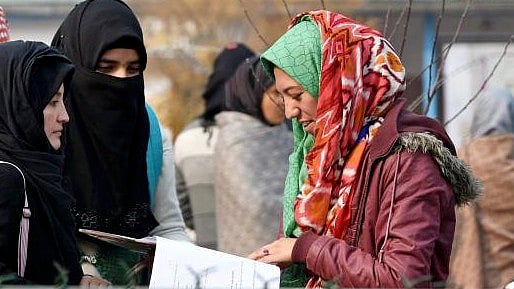
Representative image for students
Credit: PTI Photo
Sri Nagar: As investigations into the “white-collar terror module” and the recent Red Fort blast deepen, Kashmiri students studying outside the Union Territory have reported a surge in harassment, profiling and social isolation, prompting strong political pushback from leaders in the Valley.
Multiple accounts from students across northern Indian states suggest they are facing hostility after the arrest of two Kashmiri doctors linked to the alleged terror module. Students say the fallout has gone far beyond security checks, spilling into daily discrimination and suspicion.
Several Kashmiri students told their families they were denied groceries at local shops, while others claimed that classmates insinuated their families had “terror links” following the Delhi explosion. Many described a sudden shift in how landlords, peers and neighbourhoods viewed them — a shift marked by mistrust, side-glances and, in some cases, overt intimidation.
In Faridabad alone, reports indicate that more than 2,000 Kashmiri students living in rented accommodations were recently questioned by local police to verify any possible connection to the module busted earlier this month. Students allege that the exercise, though carried out in the name of security, has left them feeling singled out and vulnerable.
The rising distress has triggered an outcry in Jammu and Kashmir, where political leaders and civil society have urged New Delhi to draw a clear line between legitimate counter-terror action and the stigmatisation of an entire community.
Chief Minister Omar Abdullah on Tuesday appealed to the Centre and security agencies to ensure that investigations into the Delhi blast do not translate into blanket suspicion of Kashmiri Muslims. “The guilty must face the harshest legal consequences,” Abdullah said, “but innocent students and ordinary citizens must not be made collateral damage in the process.”
Former chief minister and PDP president Mehbooba Mufti also condemned the alleged harassment, warning against what she termed “collective punishment.” One individual’s involvement in a terror incident, she said, “cannot be used as a pretext to make lakhs of Kashmiris suffer.”
The J&K Students Association, in a statement, alleged that students in several northern states are being subjected to profiling, sudden evictions, questioning without explanation, and intimidation linked to the Red Fort blast. Calling the trend “deeply alarming,” the Association urged Prime Minister Narendra Modi to intervene to ensure the safety and dignity of Kashmiri students.
The Association said that the atmosphere of “collective suspicion” is reminiscent of past cycles of fear that followed major terror incidents, and warned that such treatment could push already stressed students into extreme mental distress.
Amid heightened national scrutiny of Kashmir following the arrests and the high-profile blast investigation, leaders and community representatives have stressed that alienating young Kashmiris studying outside the UT would be counterproductive. They urged states to ensure that police verification drives or security checks do not morph into a climate of fear for thousands of Kashmiri youth pursuing education far from home.
For now, both the families and student bodies say they are receiving a steady stream of calls from distressed families who want assurance that their children remain safe — and are not being treated as suspects by default.